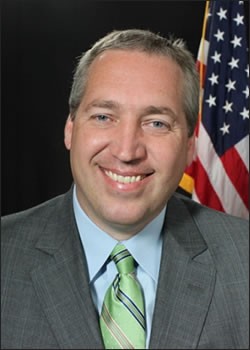A national LGBTQ civil rights attorney said that while we are currently seeing a “ramp up” of anti-LGBTQ legislation in Tennessee, these type of attacks are not unprecedented.
However, Sruti Swaminathan, staff attorney for youth for Lambda Legal, said that the emphasis and “attacks on minors” is especially cruel.
“I wouldn’t say it’s unprecedented, but the focus on children, I think that’s something that’s often been used to weaponize that all these pieces of legislation are being passed in the name of protecting children, when all of the medical evidence shows that gender affirming care is life-saving,” said Swaminathan. “Then you have legislators without an ounce of medical experience passing these laws against the wishes of parents and minors.”
Swaminathan is lead counsel for Lambda Legal in the case to block the state new law banning gender-affirming care for transgender youth. The group is joined in the lawsuit with the ACLU, and ACLU of Tennessee, and Akin Gump Strauss Hauer & Feld LLP.
Most recently, the Sixth Circuit Court of Appeals ruled in favor of Tennessee’s law that bans doctors from administering gender-affirming care to minors.
“The legal advocates are suing Tennessee on behalf of Samantha and Brian Williams of Nashville and their 15-year-old transgender daughter, two other plaintiff families filing anonymously, and Memphis-based medical doctor Dr. Susan Lacy,” said Lambda Legal via their website.
The suit was filed in the federal court, and Swaminathan said their argument was that the ban likely “violates the constitutional rights of these families, young people, and providers in the state.”
“We bring two specific challenges,” said Swaminathan. “One is an equal protection challenge under the Fourteenth Amendment.”
The law also discriminates on the basis of sex and transgender status, Swaminathan said.
“The treatments that are prohibited by the ban are banned only for transgender and non-binary minors,” said Swaminathan. “The same treatments can be given to cisgender children, and so that is a blatant discrimination on the basis of sex and trans status.”
The counsel also argues that the ban violates the “due-process clause” of parents to have “control, care, and custody” over their minors and their minors’ access to healthcare.
Now that Senate Bill 1 (SB1) is back in effect, Swaminathan said that the immediate effects of the ruling is “extremely devastating” for the families involved. They also said that the court’s decision is bound to have a legal precedent on future cases and rulings.
“Both Kentucky and Ohio sit in the Sixth Circuit, and have contemplated and passed similar pieces of legislation,” said Swaminathan. “It’s devastating, but the fight is long from over. We look forward to continuing to persuade the court that SB1 causes unimaginable harm to families in Tennessee.”
Swaminathan said that the gender-affirming healthcare bans are a “terrifying breed” of legislation, and added that without this care, there will be an increase in suicidal ideation and depression.
According to the The Trevor Project’s 2022 National Survey On LGBTQ Youth Mental Health report for the state of Tennessee, 48 percent of LGBTQ youth in the state “seriously considered suicide in the past year.” This included 58 percent of transgender and nonbinary youth. The report also said that 17 percent of LGBTQ youth in Tennessee attempted suicide in the past year. This included 25 percent of transgender and nonbinary youth.
The state of Tennessee was also the first state to have imposed restrictions on drag performances, when Governor Bill Lee signed the “anti-drag” bill into law in March. However, U.S. District Judge Thomas Parker ruled that the law was unconstitutional. Swaminathan said that this is currently still being fought in the court.
“Both of those pieces of legislation are being challenged in the court right now,” said Swaminathan. “It’s an incredibly scary time for LGBTQ folks and their family.”
The court has ordered further briefing for the trans healthcare case, and as the briefing plays out, Swaminathan said that they have indicated that they will reach a resolution by September 30th. While they’re grateful that it will be resolved within a two-month period, they also said that that period still delays care for children in Tennessee.




 Lambda Legal
Lambda Legal